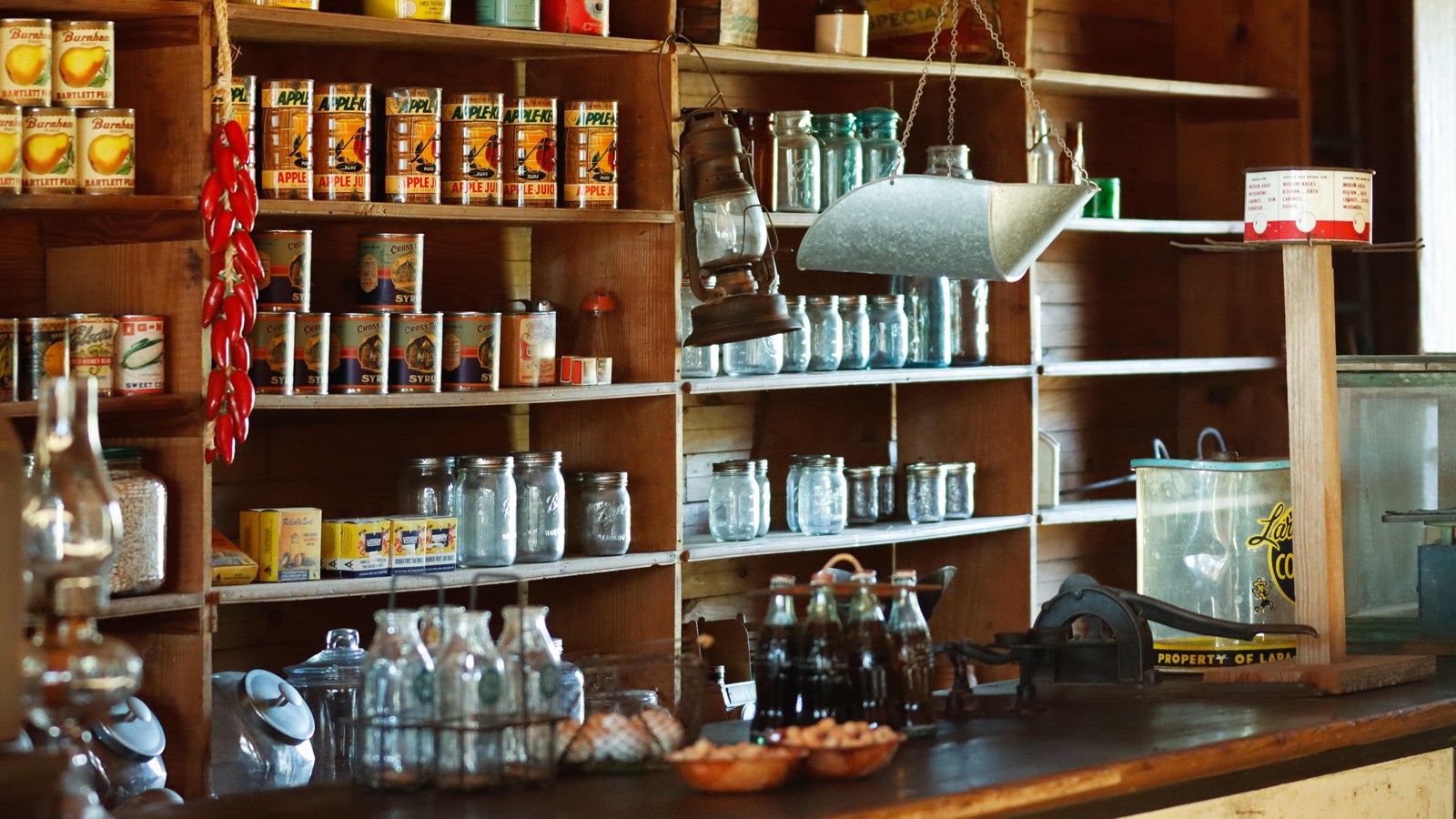Last updated: March 13, 2025
Place
Jimmy Carter Boyhood Farm Commissary

NPS / Laura Kuyat
Historical/Interpretive Information/Exhibits
Though the store wasn’t open on a set schedule, it was always available when needed. If someone came by looking to make a purchase, Earl Carter would pass the keys across the table to his young son, Jimmy. In turn, Jimmy would head over to the store, unlock the door, and assist in making the sale. This small, yet essential part of the community provided both a service to the local people and an early lesson in business and responsibility for young Jimmy Carter.
-
Commissary
The commissary on the Carter farm was essential for providing goods to workers and the family on credit. It was conveniently located, saving workers the need to travel, and offered ready credit since the landowner knew them personally. Open mainly on Saturdays for major purchases, the store allowed workers to buy necessities like shoes and tobacco. The farm’s self-sufficiency was reflected in how the store operated, often interrupting family meals to serve those in need of goods or to make payments.
